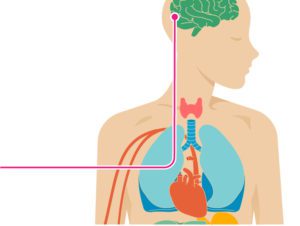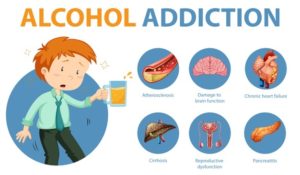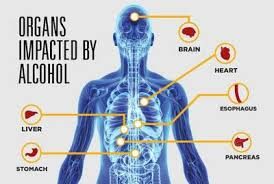
Alcohol may be less harmful for people over 50
- September 13, 2020
- 5 Likes
- 1412 Views
- 3 Comments
A recent study examines the health impact of consuming alcohol at different ages. The authors conclude that, for people over the age of 50, the health risks may be less severe. The analysis showed that the level of an individual’s alcohol-related risk was heavily influenced by age.
The researchers also saw this stark difference between age groups when they looked at the number of potential years lost to alcohol. The authors conclude that younger people “are more likely to die from alcohol consumption than they are to die from a lack of drinking,” but older people are more likely to experience the health benefits of moderate drinking.

Alcohol may act differently in older people than in younger people. Some older people can feel “high” without increasing the amount of alcohol they drink. This “high” can make them more likely to have accidents, including falls and fractures and car crashes. Also, older women are more sensitive than men to the effects of alcohol.
Drinking too much alcohol over a long time can:
- Lead to some kinds of cancer, liver damage, immune system disorders, and brain damage
- Worsen some health conditions like osteoporosis, diabetes, high blood pressure, stroke, ulcers, memory loss and mood disorders
- Make some medical problems hard for doctors to find and treat—for example, alcohol causes changes in the heart and blood vessels. These changes can dull pain that might be a warning sign of a heart attack
- Cause some older people to be forgetful and confused—these symptoms could be mistaken for signs of disease.

As mentioned, alcohol is a central nervous system depressant, meaning it slows down our nervous system. Subsequently, it can slow down the body’s primary vital organs. A person with a heart condition needs to consider the risks of drinking alcohol. Too much alcohol might slow their heart to a dangerous extent.
Older adults may suffer health conditions exacerbated by too much intake of alcohol, this includes:
- Diabetes
- High blood pressure (HBP)
- Stomach ulcer
- Osteoporosis
- Alzheimer
- Mood disorders
Excessive drinking in the older population can contribute to additional psychological stress, making them prone to anger and mental health conditions.
Unfortunately, loneliness is common in the senior community. Older people may turn to drinking to help them feel better after a significant loss or self-medicate for underlying depression. Older people who are undergoing cancer treatment should also be careful with managing their alcohol intake. Cancer treatments can weaken the body’s immune system. Introducing the body to toxins, such as alcohol, can result in more immune system deterioration.
Let us also understand that alcohol and aging can go hand-in-hand. Besides the fact that alcohol can agitate pre-existing health conditions, it can also contribute to experiencing the effects of aging more rapidly. Our skin is our largest organ, and researchers recently found clear connections between alcohol and facial aging. Someone with an alcohol use disorder will typically see their face wrinkle quicker than someone who doesn’t drink alcohol. Chronic heavy drinking is also generally associated with dehydration and increased inflammation in the body. Inflammation is known to lead to several health issues and diseases, like an increased likelihood of heart disease and cancer.


Any older adults in poor health definitely require screening for alcohol use, and should be restrained from drinking lots of alcohol, as a certain level of consumption may be dangerous.



3 Comments
Ava Nguyen
Consectetur adipisicing elit sed do eiusmod tempor incididunt ut labore et dolore magna aliquaenim admei minimiamaci quis nostrud exercitation ullamco laboris nisi ut aliquip.
Sarah Chapman
Sed quia consequuntur magni dolores eos qui ratione voluptatem sequi nesciunt. Neque porro quisquam est, qui dolorem ipsum quia dolor sit amet, consectetur, adipisci velit, sed quia non numquam eius modi quaerat voluptatem.
Ava Nguyen
Consectetur adipisicing elit sed do eiusmod tempor incididunt ut labore et dolore magnaism aliquaenim admei minimiamaci quis nostrud exercitation ullamco.